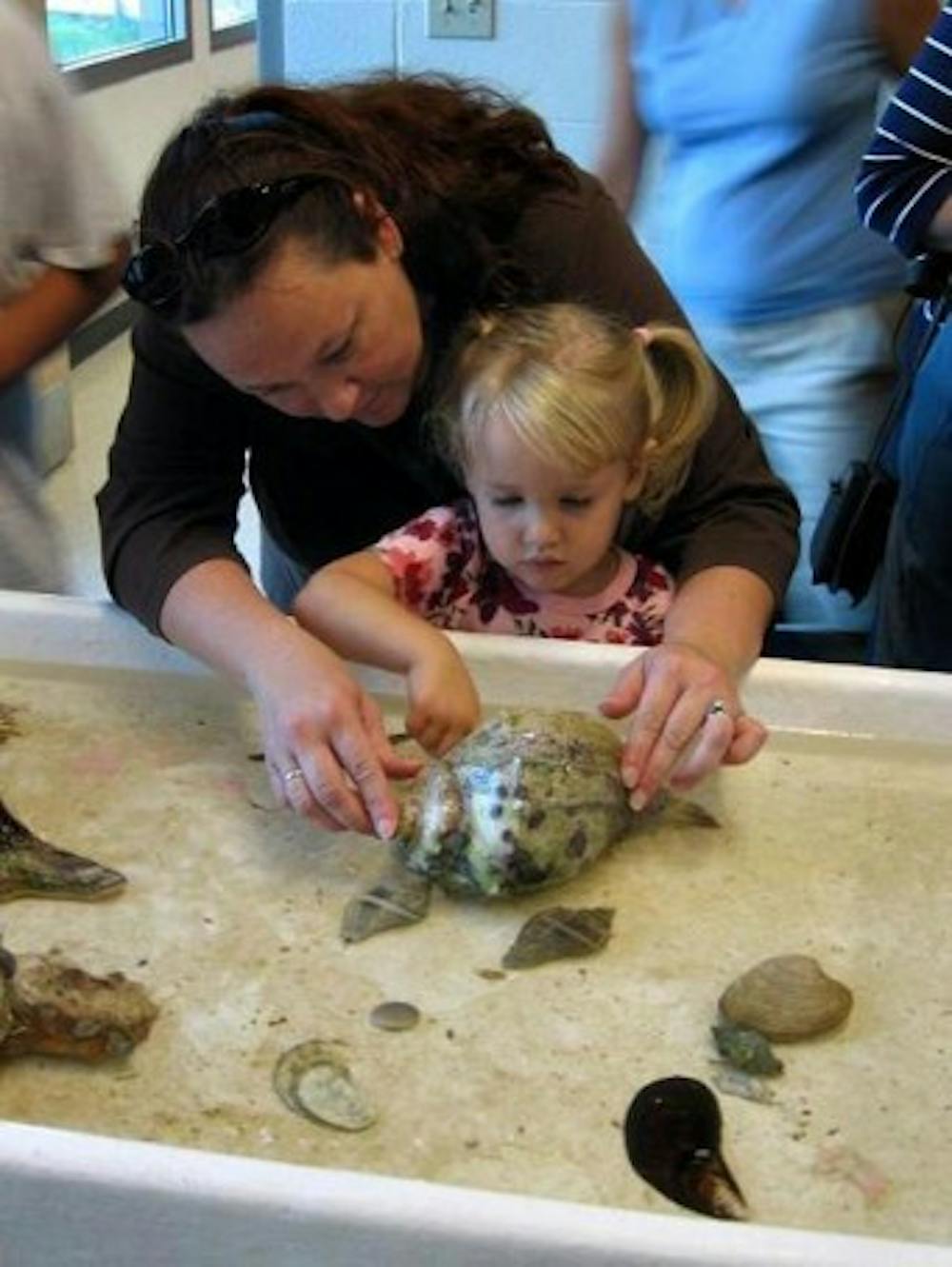UF's newest research institute is located about 80 miles away from campus on the southern outskirts of St. Augustine in Marineland, an incorporated town.
During the Whitney Laboratory for Marine Bioscience's open house on Saturday, everything from lab tours to touch tanks was featured.
The open house emphasized the lab's newly built Center for Marine Studies, which was completed last March.
The rest of the lab's facilities date back to 1974.
Stacey Marsh, director of development for the institute, said the new building was a much-needed addition to the lab.
"With it comes the capacity to do everything we dreamed of doing," she said.
Peter Anderson, director of the institute, said there was a great turnout for the event, which he specified was not for fundraising but simply to increase awareness of the lab in the community.
The open house gave visitors the opportunity to see various kinds of marine life up close and personal, from horseshoe crabs to spiny lobsters. Touch tanks were also popular with both children and adults.
Researchers at the Whitney Lab study marine life for human medical advances, Anderson said.
Anderson, who studies jellyfish, said most people don't understand how studying aquatic animals can help humans because they think they're so physically different.
"They're actually not," he said. "That's the amazing thing."
Anderson added that humans and jellyfish have nearly identical nervous systems.
Marsh said the open house was a good opportunity for the general public to see what goes on inside the lab.
"What the lab does is not easily understood," she said. "People think we're taking care of the dolphins, and we don't have anything to with it. We're a UF lab."
The lab had to put its annual open house event on hold for three years because of construction that limited parking, Anderson said.
Even with additional parking, there were hardly enough spaces to accommodate visitors eager to see what was behind the Whitney Lab's walls.
Although the Whitney Lab is well-known and respected in scientific circles, Marsh said, a lot of people outside the St. Augustine area don't even know it exists.
"Our ultimate goal is for our community to know about us," Anderson said.






